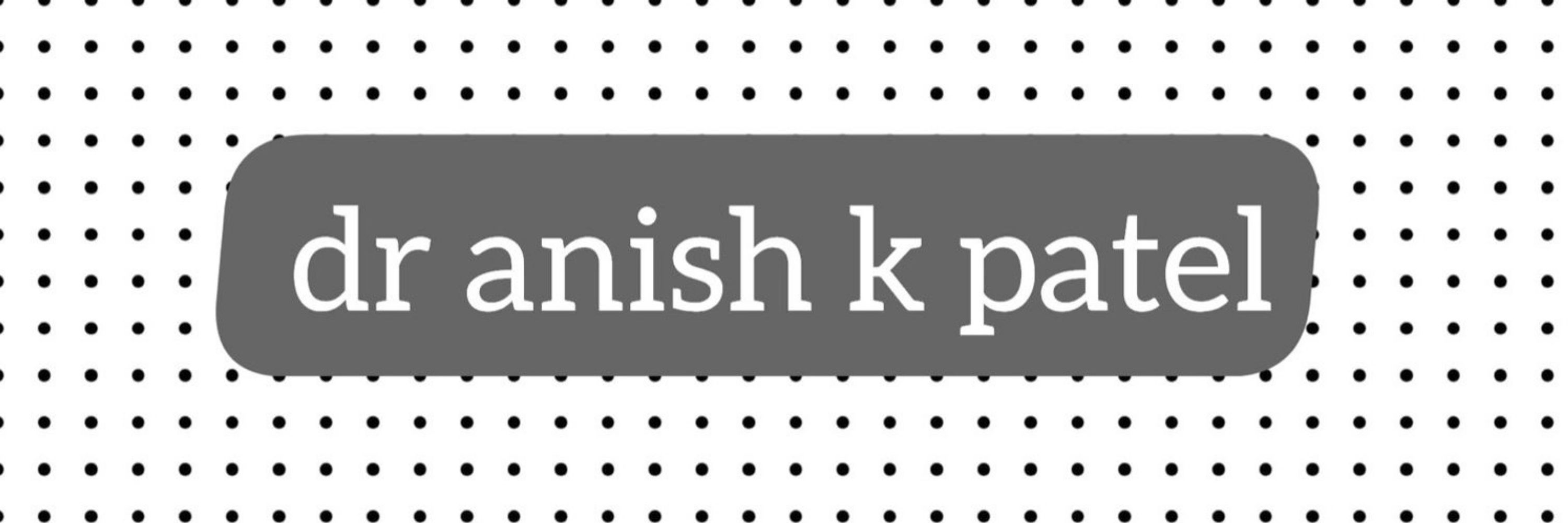
typeshare.co/anishkpatel/...

typeshare.co/anishkpatel/...
When headlines promise booking, GPs get the heat, patients feel misled, and the bar for Wes jumps higher than he intended. 😬



When headlines promise booking, GPs get the heat, patients feel misled, and the bar for Wes jumps higher than he intended. 😬
But it’s still layered on top of a structure that pays for scale, not sense.
Until that changes, the incentives won’t.
2/3
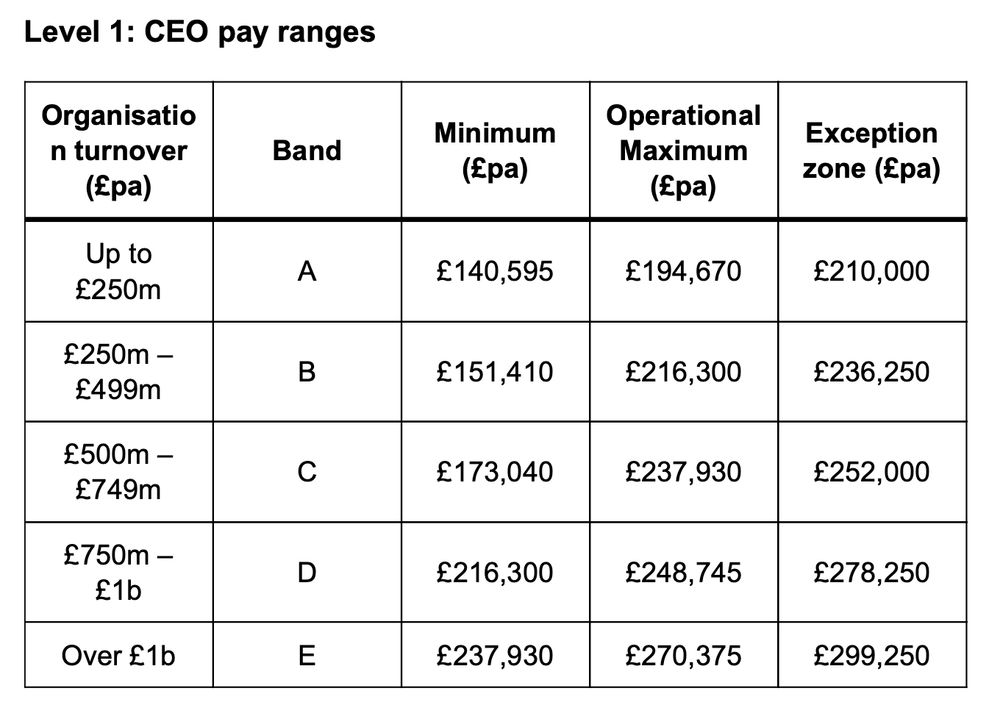

But it’s still layered on top of a structure that pays for scale, not sense.
Until that changes, the incentives won’t.
2/3
They’re rewarded for control.
Bigger budget = bigger band = bigger pay.
Even if that means holding on when they should let go.
1/3
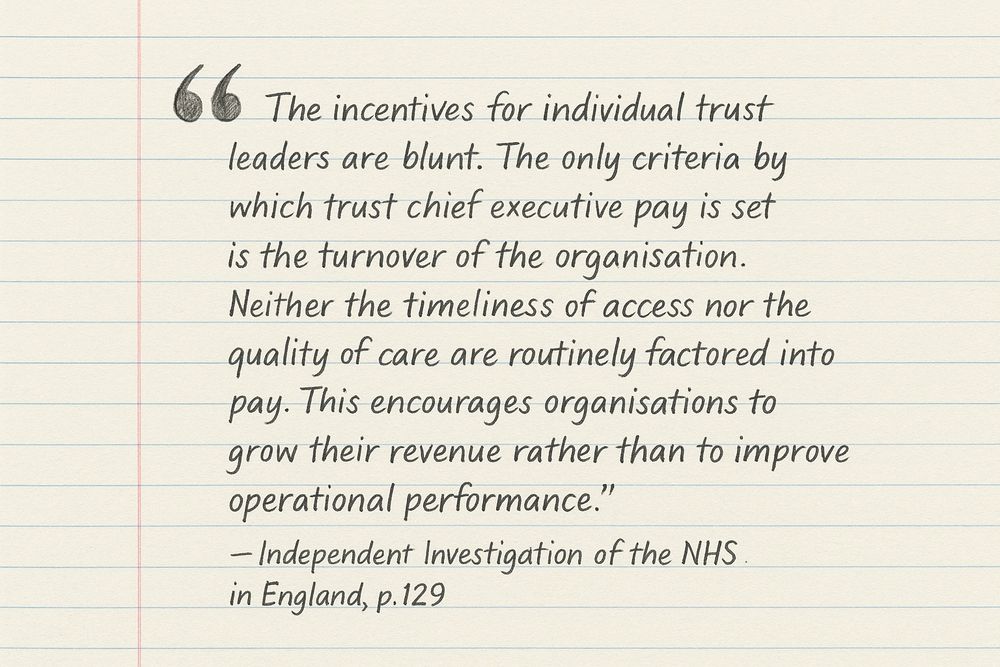
They’re rewarded for control.
Bigger budget = bigger band = bigger pay.
Even if that means holding on when they should let go.
1/3
I explained how GP practices in poorer areas actually receive less funding than those in richer ones. His eyes widened. 😳He had no idea.
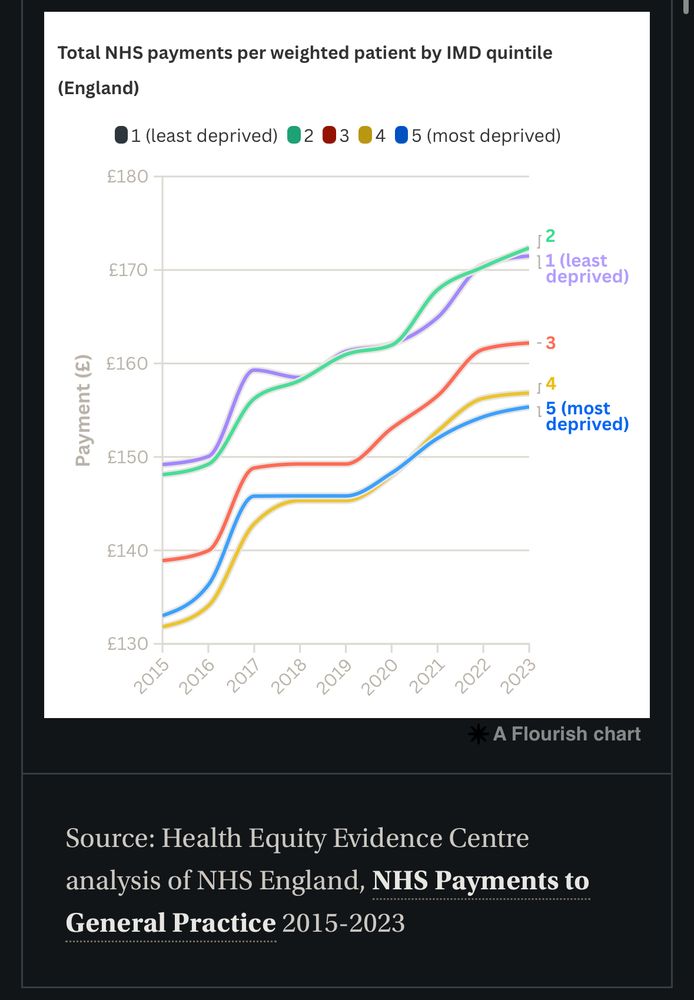
I explained how GP practices in poorer areas actually receive less funding than those in richer ones. His eyes widened. 😳He had no idea.
We notice what holds us back more than what helps us forward.
A problem fixed is quickly forgotten.
We are experts as tracking hardship.
2/3
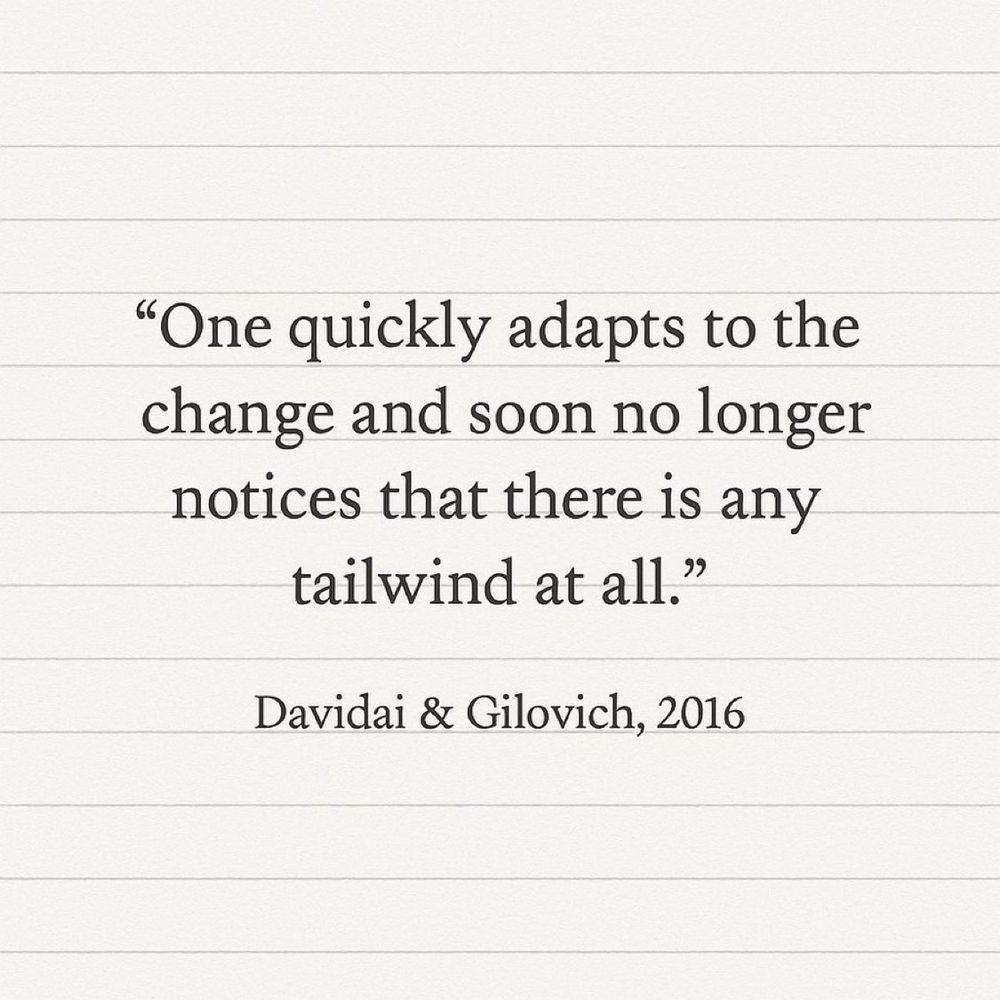
We notice what holds us back more than what helps us forward.
A problem fixed is quickly forgotten.
We are experts as tracking hardship.
2/3
You help people when they’re scared, broken, or lost.
But instead of feeling fulfilled, you feel empty.
This is what burnout in the NHS really feels like.
And it’s not just happening.
It’s being designed into the system.
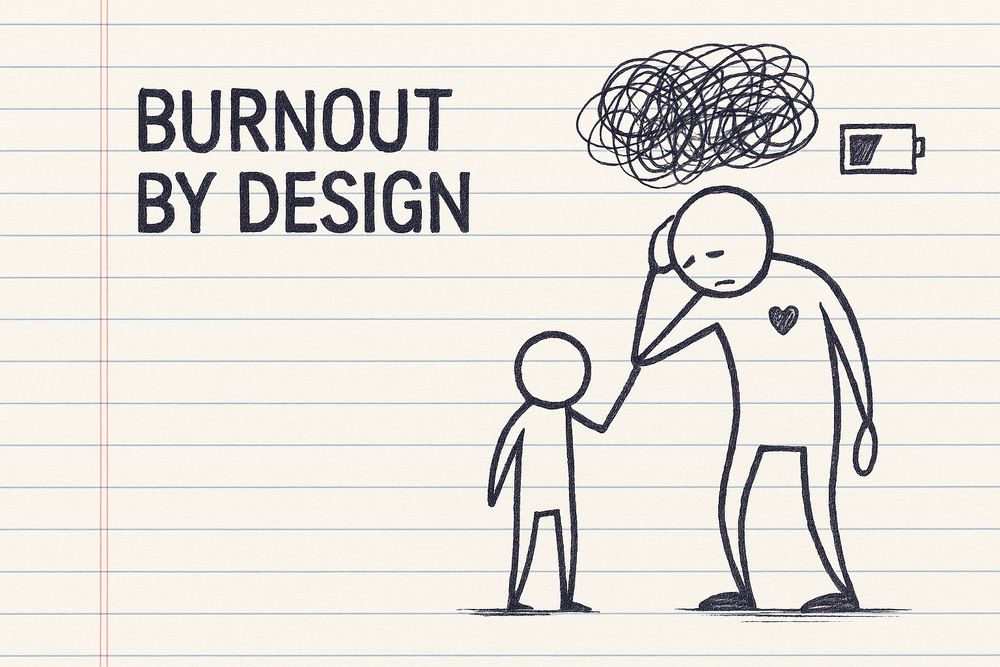
You help people when they’re scared, broken, or lost.
But instead of feeling fulfilled, you feel empty.
This is what burnout in the NHS really feels like.
And it’s not just happening.
It’s being designed into the system.
This can be fixed
If we commit to funding new GP posts, we can:
✅ Make sure practices can afford to hire GPs
✅ Improve retention by spreading workload fairly
✅ Stop the brain drain to other countries
This is not a fantasy. The numbers do work.

This can be fixed
If we commit to funding new GP posts, we can:
✅ Make sure practices can afford to hire GPs
✅ Improve retention by spreading workload fairly
✅ Stop the brain drain to other countries
This is not a fantasy. The numbers do work.
GPs are in demand worldwide. Canada, Australia, and New Zealand offer better pay, better working conditions, and a better work-life balance.
We are already training many of the world’s GPs. Do we want to keep them, or export them?

GPs are in demand worldwide. Canada, Australia, and New Zealand offer better pay, better working conditions, and a better work-life balance.
We are already training many of the world’s GPs. Do we want to keep them, or export them?
Another problem has emerged: qualified GPs can’t find jobs. It sounds absurd—we need more GPs, yet practices can’t afford to hire them. It is a failure to fund GP posts.
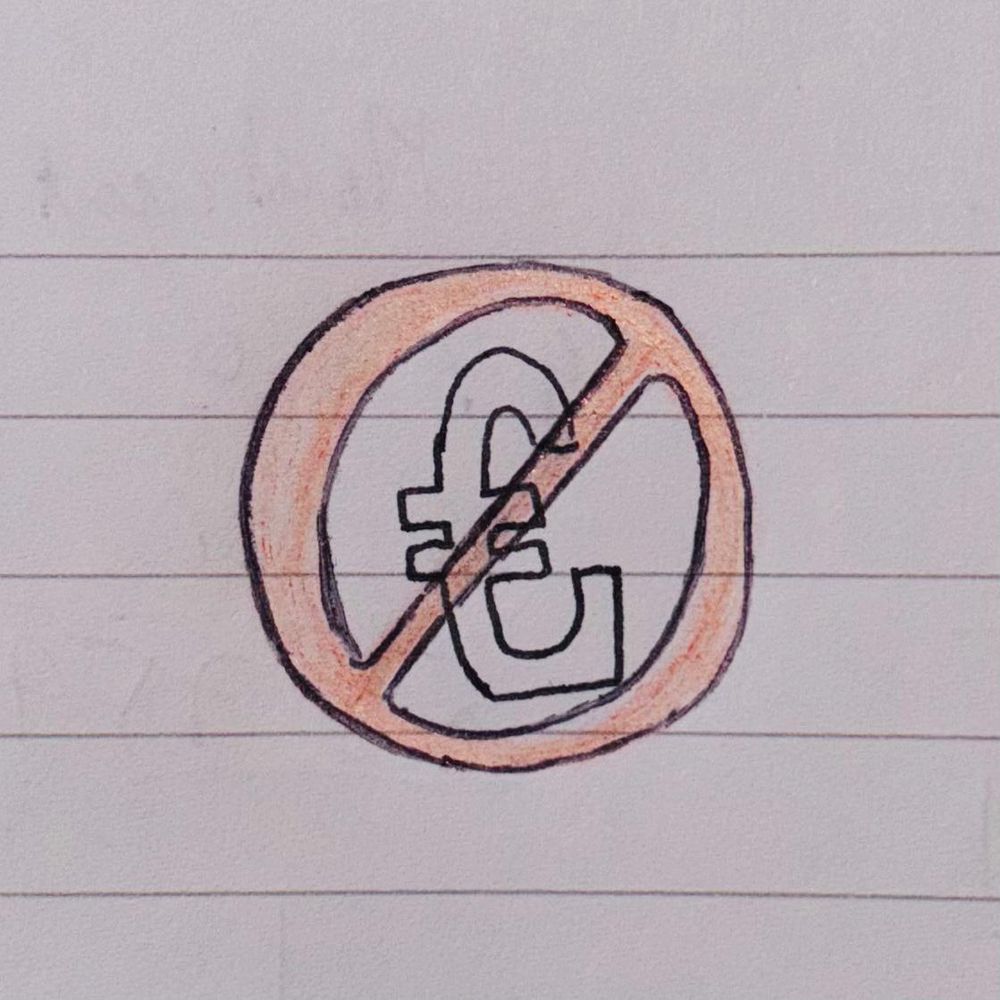
Another problem has emerged: qualified GPs can’t find jobs. It sounds absurd—we need more GPs, yet practices can’t afford to hire them. It is a failure to fund GP posts.
Over the last decade, GPs have reduced hours, taken on non-traditional roles, or left the profession altogether.
Many have done this to avoid burnout.
Unless we fix retention, we’ll keep pouring new doctors into a leaky bucket.

Over the last decade, GPs have reduced hours, taken on non-traditional roles, or left the profession altogether.
Many have done this to avoid burnout.
Unless we fix retention, we’ll keep pouring new doctors into a leaky bucket.
For over a decade, we’ve been losing GPs instead of gaining them. It's only recently stabilised.
Using ONS projected population growth and data on registered pts in England, I worked out what it would take to hit the 1:1000 target.
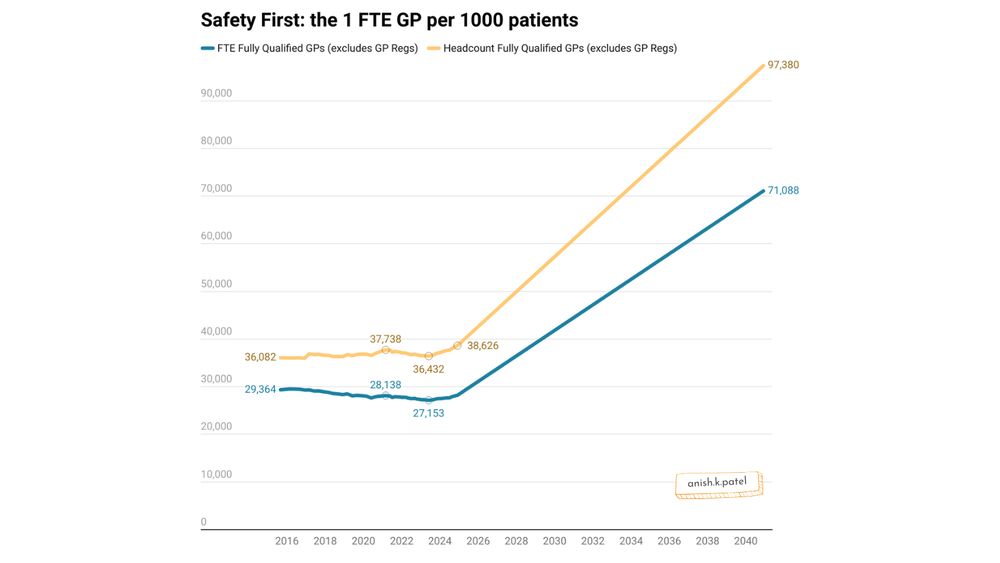
For over a decade, we’ve been losing GPs instead of gaining them. It's only recently stabilised.
Using ONS projected population growth and data on registered pts in England, I worked out what it would take to hit the 1:1000 target.
GP numbers have not kept up with demand. But what would it take to fix this?
The BMA’s "gold standard" for safe general practice is 1 full-time GP per 1,000 patients. Ambitious? Yes. Impossible? Let’s break it down. 🧵



GP numbers have not kept up with demand. But what would it take to fix this?
The BMA’s "gold standard" for safe general practice is 1 full-time GP per 1,000 patients. Ambitious? Yes. Impossible? Let’s break it down. 🧵
God help us!

God help us!

🧵

🧵
From sad, burnt-out staff → to happy, energised ones
As James Timpson says: 'At the heart of every successful venture lies a remarkable, happy team.'

From sad, burnt-out staff → to happy, energised ones
As James Timpson says: 'At the heart of every successful venture lies a remarkable, happy team.'
Where you live determines your access to General Practice—if not the access itself, then the type of access.
Can’t help thinking part of this is driven by inequitable funding via Carr-Hill formula.
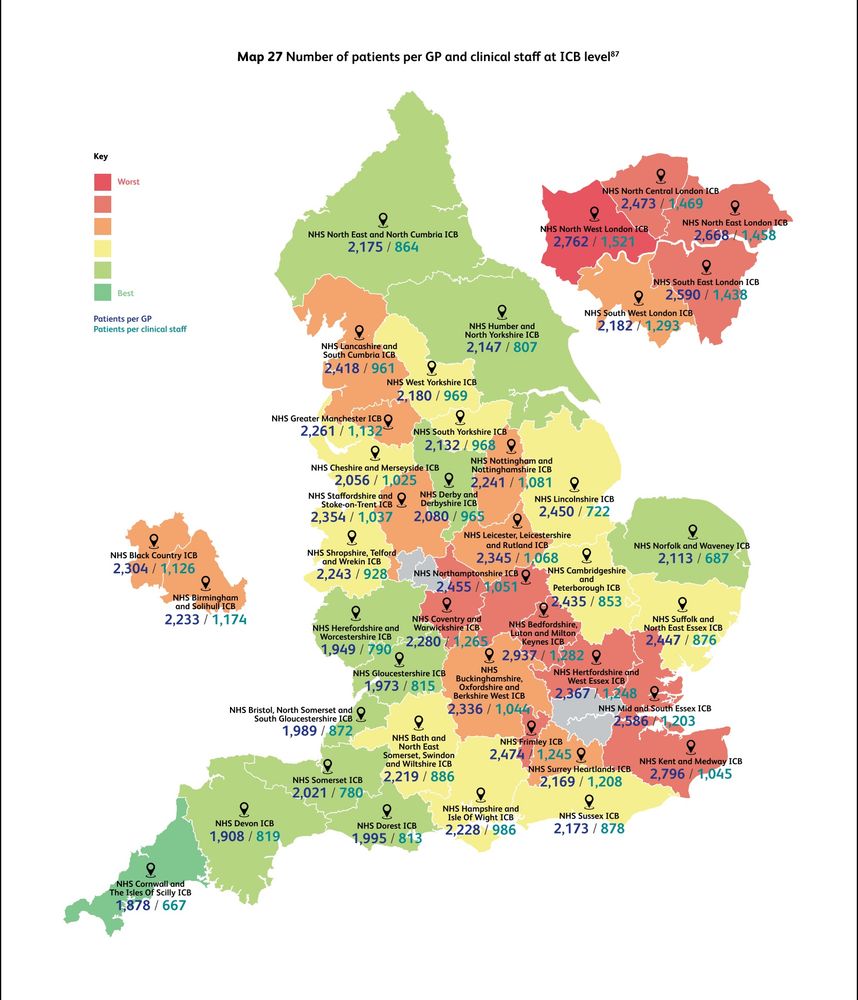
Where you live determines your access to General Practice—if not the access itself, then the type of access.
Can’t help thinking part of this is driven by inequitable funding via Carr-Hill formula.
- Limit mandatory training to the most critical topics.
- Deliver engaging content designed for real learning.
- Move beyond a fear-driven, compliance-first mindset.

- Limit mandatory training to the most critical topics.
- Deliver engaging content designed for real learning.
- Move beyond a fear-driven, compliance-first mindset.
The more we add to mandatory training, the less meaningful it becomes. The most important lessons get lost beneath “nice-to-know” material. We get overloaded.

The more we add to mandatory training, the less meaningful it becomes. The most important lessons get lost beneath “nice-to-know” material. We get overloaded.
Simple: organisations fear the CQC. It’s all about ticking the cheapest, easiest boxes to prove compliance, not about meaningful learning.

Simple: organisations fear the CQC. It’s all about ticking the cheapest, easiest boxes to prove compliance, not about meaningful learning.
Most GP practices use platforms like Bluestream—slide decks pretending to be interactive. They’re dry, disengaging, and feel like a chore.

Most GP practices use platforms like Bluestream—slide decks pretending to be interactive. They’re dry, disengaging, and feel like a chore.
Some topics are no-brainers: fire safety and basic life support. But every year, new items are added to the list, and nothing is removed. Where does it stop?

Some topics are no-brainers: fire safety and basic life support. But every year, new items are added to the list, and nothing is removed. Where does it stop?
Once a tool for learning critical skills, it's now a growing list of endless requirements. If everything is mandatory, is anything truly essential?
🧵

Once a tool for learning critical skills, it's now a growing list of endless requirements. If everything is mandatory, is anything truly essential?
🧵


